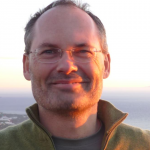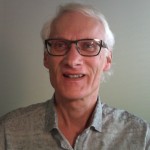This talk addresses the unity of the structured atomic proposition that a is an F. I address both the metaphysical problem of how multiple, heterogeneous parts are unified into one whole that has features none of its parts have, as well as how to decompose the whole back into its parts, and the semantic problem of how propositions are related to truth-conditions. I analyze both an empirical and a non-empirical (e.g. mathematical) variant of the proposition that a is an F; for instance, that Pluto is a planet, and that two is prime. The solutions I offer are developed within a realist procedural semantics (Transparent Intensional Logic), which identifies meanings with procedures for obtaining output objects from input objects. My general approach is broadly Fregean, but makes do without the notion of unsaturated objects. I demonstrate how predication holds the key to the unity of at least atomic propositions. Predication is modelled as an instance of the logical procedure of functional application.
Suggested background readings:
Jespersen, B., ‘Recent work on structured meaning and propositional
Unity’, Philosophy Compass 7 (2012): 620-30.
Jespersen, B., ‘Structured lexical concepts, property modifiers, and Transparent Intensional Logic’, Philosophical Studies 172 (2015): 321-45.
Keller, L., ‘The metaphysics of propositional constituency’, Canadian Journal of Philosophy 43 (2013): 655-78.
Philosophy Tutorial
Date: Friday, 18 Sep 2015
Time: 11am – 1pm
Venue: AS3 #05-23
Speaker: Bjørn Jespersen, University of Barcelona
Moderator: Dr. Tang Weng Hong
About the Speaker:
 Bjørn Jespersen is currently affiliated with the LOGOS Research Group in Logic, Language and Cognition at the University of Barcelona as a Marie Curie Fellow funded by a European Commission grant. Before that he held research and teaching positions at Delft University of Technology, the Czech Academy of Sciences, and Leiden University.
Bjørn Jespersen is currently affiliated with the LOGOS Research Group in Logic, Language and Cognition at the University of Barcelona as a Marie Curie Fellow funded by a European Commission grant. Before that he held research and teaching positions at Delft University of Technology, the Czech Academy of Sciences, and Leiden University.
He obtained his PhD at the Masaryk University in the Czech Republic on a thesis devoted to reference and attitudes in Transparent Intensional Logic. He originally studied philosophy at the University of Aarhus in his native country of Denmark.
He is a co-author of the award-winning book Procedural Semantics for Hyperintensional Logic (Springer, 2010) and has published in excess of fifty papers and book chapters in, for instance, Philosophical Studies, Synthese, Synthese Library, Studia Logica, Journal of Philosophical Logic, and most recently in Thought. He has co-edited a special section of Synthese containing papers on hyperintensionality, and will be co-editing a special issue of Synthese together with Manuel García-Carpintero containing papers on propositional unity, some of which were presented at the recent LOGOS conference on this topic.
His current project is devoted to the unity of structured, fine-grained propositions. He has published a paper on recent work devoted to this topic in Philosophy Compass. His two latest projects were on quantifying-in and modifiers. His general interest is philosophical logic and philosophy of language.
The two presentations that Dr Jespersen is giving at Singapore National University have previously been given at UC Irvine, UNAM, and University of Stockholm.
 Takuro Onishi is a visiting scholar at our Department of Philosophy. His stay is supported by the program “Japan-ASEAN Collaboration Research Program on Innovative Humanosphere in Southeast Asia” of the Center for Southeast Asian Studies, Kyoto University. In 2012 he received a Ph.D from Kyoto University for his thesis on proof-theoretic semantics. He has published several papers on Michael Dummett’s philosophy and non-classical logic.
Takuro Onishi is a visiting scholar at our Department of Philosophy. His stay is supported by the program “Japan-ASEAN Collaboration Research Program on Innovative Humanosphere in Southeast Asia” of the Center for Southeast Asian Studies, Kyoto University. In 2012 he received a Ph.D from Kyoto University for his thesis on proof-theoretic semantics. He has published several papers on Michael Dummett’s philosophy and non-classical logic.

 Bjørn Jespersen is currently affiliated with the LOGOS Research Group in Logic, Language and Cognition at the University of Barcelona as a Marie Curie Fellow funded by a European Commission grant. Before that he held research and teaching positions at Delft University of Technology, the Czech Academy of Sciences, and Leiden University.
Bjørn Jespersen is currently affiliated with the LOGOS Research Group in Logic, Language and Cognition at the University of Barcelona as a Marie Curie Fellow funded by a European Commission grant. Before that he held research and teaching positions at Delft University of Technology, the Czech Academy of Sciences, and Leiden University.


